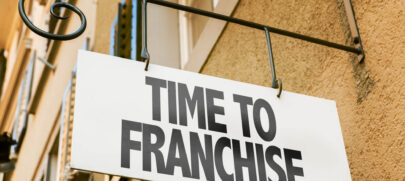We’ve been following the legal issues around minimum wage laws and how they’ll affect franchisees for some time, but they’ve been abstract up until now. On April 1st, just a few weeks from now, Seattle’s minimum wage rise will go into effect. In between then and now, there will be one more hearing on the subject. Depending how that hearing goes, franchisees may find themselves having to move from the abstract to the concrete pretty quickly.
Seattle’s minimum wage, already $9.32 (higher than the national minimum) will be going up to $15.00 an hour. Small businesses have seven years to work their way up to that price. Small businesses have three years.
For the purposes of this law, Seattle’s lawmakers have defined franchises as big businesses. That means that an independent sandwich shop franchisee paying minimum wage will have to find an extra $1.90 each hour for each employee for each of three years. We’re assuming here that the changes are evenly spaced, just to make the comparison simpler. They are not.
Here are some of the issues on the table:
- A franchise cleaning service right next door to an independent cleaning service will have to pay significantly more to staff. This increases their costs compared with a very similar competitor next door. If each business has six full time workers, the additional cost for the franchise in the first year (assuming it’s evenly spaced, which is not the case) could be about $260 per week, plus wage-dependent benefits. That means that the franchise shop could spend more than $40,000 more than its competitor over the course of those three years — and yet a staff of six suggests a small business. By the 7th year, when the two businesses are paying the same amount, the franchise might have gone under.
- The independent shop could use the savings to keep costs lower than their competitor, or to keep their business afloat during lean times during those transitional years. While this seems to give independent businesses a leg up, Seattle’s lawmakers say that franchises have so many advantages over independent businesses that the law actually levels the playing field. They’ve offered no evidence of this beyond listing the advantages franchises are known to have: name recognition, a proven system, and support from the franchisor. It’s not clear that the costs/advantage ratio is based on any actual numbers.
- In an interview earlier this year, an individual favoring this change was recorded as saying that it would be fine if the franchise system were crippled by this law. She felt that franchises are somehow intrinsically unfair. Yet franchises have created jobs much faster than independent businesses in recent years, and they vary as much as independent businesses. Still, some franchisors are worrying that rulings of this kind could require them to oversee their franchisees more closely. That would undoubtedly increase costs, and both franchisees and customers would probably end up paying more.
Seattle’s franchisees and prospective franchisees may be keeping their fingers crossed and waiting to see what happens. But it is possible that this case will affect other franchisees around the country.


